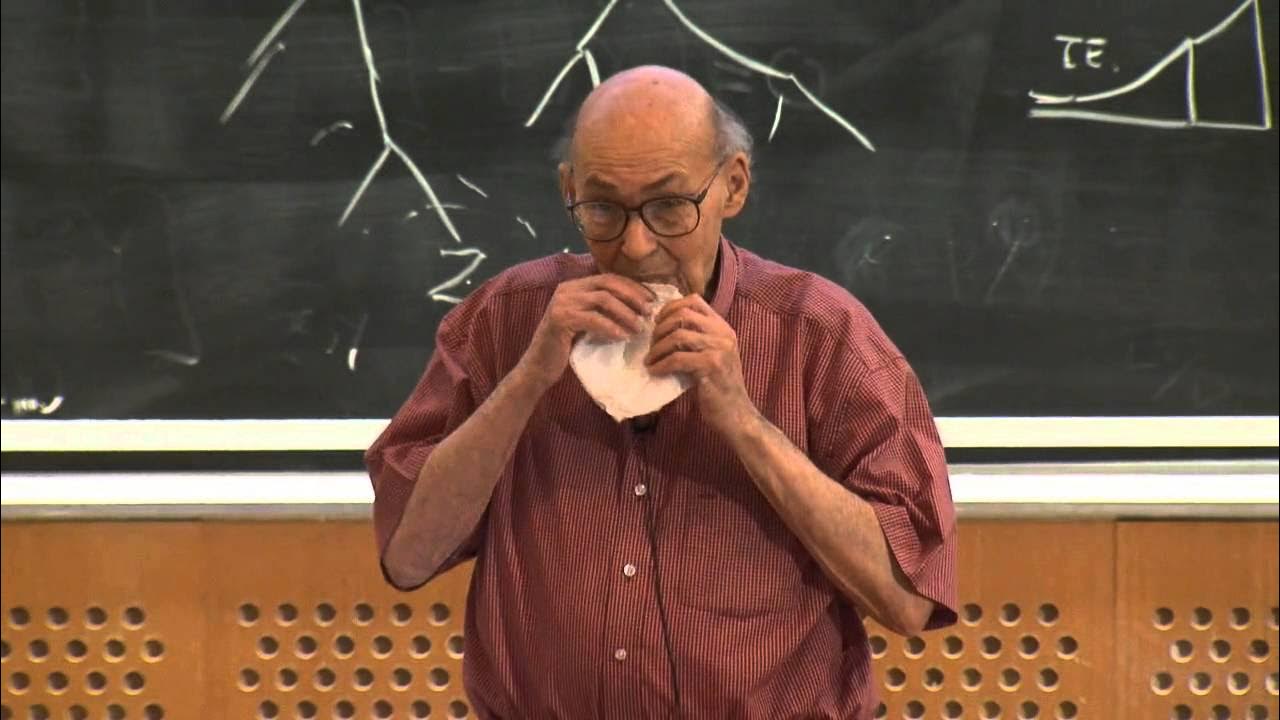Why You Hate Your Life | Schopenhauer
Summary
TLDR这段视频脚本深入探讨了亚瑟·叔本华的悲观主义哲学,解释了为什么人类比动物更容易遭受痛苦。叔本华认为,人类之所以痛苦,是因为我们拥有思考和反思的能力,这使我们能够意识到生活的无意义和长期目标的失败。视频还讨论了如何通过接受痛苦的普遍性、培养感恩之心以及与他人共享痛苦来找到安慰和亲密感。最后,视频鼓励我们通过阅读叔本华的作品来更深入地理解他的哲学思想。
Takeaways
- 📚 亚瑟·叔本华是一位极端悲观主义哲学家,他的观点常常被误解为只带来痛苦和毁灭。
- 🧐 叔本华认为人类之所以比动物遭受更多痛苦,是因为我们具有思考和反思的能力。
- 🤔 人类总是担忧未来或评判过去,而动物则活在当下,只要基本需求得到满足,它们就感到满足。
- 🔄 叔本华认为,我们不是为幸福而生,而是有一种生存的意志和生命本能,这使我们不断追求和挣扎。
- 😌 幸福在叔本华看来是短暂的,它更像是缺乏痛苦的状态,而非一种积极的情感。
- 🙏 感恩可以被视为一种转化力量,能够将平淡无奇的情况转变为绝对的幸福。
- 🤯 叔本华认为,我们常常对自己撒谎,认为达到某个目标就会获得长久的幸福,但这通常不是真的。
- 🙌 通过接受生活中的痛苦是不可避免的,我们可以更好地准备面对它,而不是感到惊讶。
- 🧘♂️ 通过禁欲主义,我们可以学会控制自己的欲望,从而找到内心的平静和满足。
- 🤝 共享痛苦可以让人们团结在一起,因为我们都遭受着痛苦,这可以促进同情和互助。
- 🌟 尽管叔本华是一个悲观主义者,但他的思想中也包含了对人类同情和团结的乐观看法。
Q & A
亚瑟·叔本华是如何描述人类与动物在痛苦上的不同的?
-叔本华认为,人类之所以比动物遭受更多的痛苦,是因为人类具有思考和反思自己的独特能力。动物如叔本华所提到的狗罗茜,只要基本的生理需求得到满足,它们就能感到满足和幸福。而人类则常常担忧未来,回顾过去,并且不断地在精神上增加自己的痛苦。
为什么叔本华认为人类总是倾向于追求未来的目标,而不是享受现在?
-叔本华认为,人类从一开始就对生活充满了无限的可能性和希望,他们将生活的完整性和意义寄托于未来的伟大成就上。但随着年龄的增长,人们逐渐意识到只有少数目标能够实现,这导致了从对未来的恐惧到对过去的失望的转变,而忽视了享受现在的重要性。
叔本华如何解释人类生活中的痛苦比快乐更为显著?
-叔本华认为快乐很少被察觉,即使被察觉,也只是短暂的一刻。他将快乐视为缺乏痛苦的状态,即当我们的意愿不受阻碍,所有当前需求得到满足,所有愿望都在实现时的状态。大多数人在这种状态下并不感到狂喜或兴奋,而是没有痛苦,这与人们在需求未得到满足时所感受到的强烈痛苦形成了鲜明对比。
为什么叔本华认为幸福是一种缺乏痛苦的状态,而不是一种积极的情感?
-在叔本华看来,幸福并不是一种积极的情感,而是一种缺乏痛苦的状态。他认为,当人们的意愿不受阻碍,所有当前需求得到满足,所有愿望都在实现时,人们并不会感到狂喜或兴奋,而是没有痛苦。这种状态的不可见性是叔本华被认为是悲观主义者的原因之一。
在叔本华的哲学中,为什么人类总是对自己撒谎,认为实现某个目标就会获得长久的幸福?
-叔本华认为,这是一种人类自我欺骗的循环,我们不断地告诉自己,如果实现了某个目标,我们就会最终感到幸福和满足。但事实上,一旦最初的兴奋消退,我们就会回到起点,继续感到轻微的悲伤和不满。这是因为我们被设计成要不断地追求,而不是满足于现状。
为什么叔本华提倡通过感恩来转化生活中的不满?
-叔本华认为,感恩是一种能够将平淡或仅仅令人满意的情境转变为绝对幸福的炼金术。通过控制我们的期望和约束我们的意愿,使现实成为一个愉快的惊喜。这种观点与尼采在《快乐的科学》中提到的人类表达感恩的犹豫不决形成了对比。
叔本华如何解释人类在生活中的苦难可以带来人与人之间的亲密关系?
-叔本华认为,共享的痛苦可以使人们形成强烈的联系。当人们经历相同的痛苦时,他们会立即形成紧密的纽带。没有什么比共享的苦难更能将人们聚集在一起,因为我们都从根本上是受苦的存在。
在叔本华的哲学中,为什么他认为我们应该接受生活中的痛苦是不可避免的?
-叔本华认为,接受生活中的痛苦是不可避免的,可以让我们避免因世界观受到挑战而感到痛苦。他鼓励我们接受生活总是包含痛苦的事实,这样我们当然会悲伤,但不会惊讶。
叔本华是如何建议我们通过限制欲望来减轻痛苦的?
-叔本华建议我们从其他思想家如伊壁鸠鲁和佛陀那里吸取智慧,通过仔细的训练和对自己意愿的掌握来限制我们的欲望。这显然是一个庞大的话题,但《伊壁鸠鲁论幸福》和斯多葛哲学家爱比克泰德的作品是很好的起点。
叔本华的哲学如何帮助我们理解人类痛苦的普遍性,并鼓励我们对他人产生同情心?
-叔本华的哲学提醒我们,世界上没有一个人是不遭受痛苦的。认识到痛苦的普遍性应该鼓励我们对彼此产生深刻的同情心。他认为我们应该不是以先生或女士的身份相互问候,而是作为共同的受苦者,因为我们都在同一条破旧的船上,我们应该团结一致。
叔本华的哲学对于个人生活有哪些实际的建议或指导?
-叔本华的哲学鼓励我们接受生活中的痛苦,学习限制我们的欲望,并通过认识到痛苦的普遍性来培养对他人的同情心。他的哲学虽然初看似乎令人感到生活的无望,但实际上提供了如何在一个冷漠的世界中找到慰藉的见解。
Outlines

This section is available to paid users only. Please upgrade to access this part.
Upgrade NowMindmap

This section is available to paid users only. Please upgrade to access this part.
Upgrade NowKeywords

This section is available to paid users only. Please upgrade to access this part.
Upgrade NowHighlights

This section is available to paid users only. Please upgrade to access this part.
Upgrade NowTranscripts

This section is available to paid users only. Please upgrade to access this part.
Upgrade NowBrowse More Related Video

睽違兩年!經典作品一讀就懷疑人生?五本女性主義入門〈我推の種種〉ep01|周小姐碎碎念

【サピエンス全史③】地球を制圧した人類は幸せなのか?そして人類の未来とは?

Finance Law Part 1: Introduction: Definition and concept

Is consciousness an illusion? 5 experts explain

台灣#MeToo狂燒,MeToo運動完整解析!當事人為何不早說?台灣人性別意識覺醒?MeToo運動下一步該怎麼走?MeToo女性主義哲學 |拆解台灣的父權文化 | 超級歪電影院EP23《人選之人》

3. Cognitive Architectures
5.0 / 5 (0 votes)
